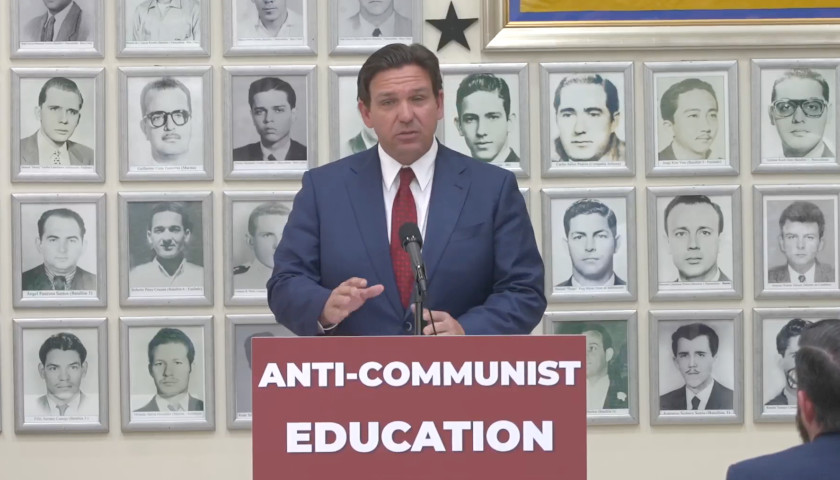by Madison Hirneisen and Jon Styf
Growth in plants connected to electric vehicles has roared across the country.
Not everyone, however, is quickly jumping in.
When Virginia Gov. Glenn Youngkin said last week that he stopped efforts to establish a Ford Motors battery plant at a megasite in the state due to its Chinese partner, it was the first time University of Texas professor Nathan Jensen could recall a state rejecting an economic incentive deal for a battery plant.
Jensen, who has a doctorate in political science from Yale, studies economic incentives and wrote the book, “Incentives to Pander” on the political power of economic incentives along with Duke’s Edmund Malesky.
“It’s rare to see, based on the country of origin, a changing of the incentives,” Jensen said. “You can imagine discriminating against certain countries but, in reality especially with these big projects, what you really see is almost a ‘go all in’ strategy.”
Youngkin told reporters in a gaggle following his State of the Commonwealth address last week that his administration “felt that the right thing to do was to not recruit Ford as a front for China to America.” During his address, he called on the General Assembly to send him a bill prohibiting “dangerous foreign entities tied to the [Chinese Community Party] from purchasing Virginia farmland.”
Lithium iron phosphate batteries for electric vehicles would have been built at the plant.
The governor offered further details Thursday, telling reporters Ford and CATL, a Chinese battery manufacturer, were aiming to establish a plant that would be built by Ford but operated by CATL. Youngkin said the employees of the plant “were going to work for the Chinese Communist Party-controlled company.”
“They were going to use that in order to try to tap into taxpayer benefits at state level as well as the federal level that were specifically designated for non-Chinese Communist Party entities,” Youngkin continued. “And as a result, when the process to propose for it to come here – which had not been decided – came to me, I felt this was wholly inconsistent with the way taxpayer money should be used. And I felt like it was a bit deceptive the way they had structured it. And therefore, I said, we’re not going to submit a proposal.”
Youngkin clarified Ford had not made a decision at that point and were waiting for a proposal from Virginia and other states they were considering with possible sites for the plant.
What Jensen and economists who study incentives know is the data doesn’t back having the government give private companies funding toward new projects. The benefits don’t outweigh the payments and, in many cases, it is done for political benefits while politicians tout economic benefits that go unfulfilled.
“From a policy perspective, it’s the same as any other corporate subsidy in the name of economic development, which is that it’s a terrible idea for city or local governments to be doing,” said John Mozena, president of the Center for Economic Accountability. “In the long run, it often ends up hurting communities more than it helps them.”
Mozena said there’s currently a gold rush across the country where politicians are looking to take credit for landing electric vehicle and battery plants. He said local electric rates play a larger role than incentives in companies choosing where they will build.
His group recently called Georgia’s $1.5 billion incentive for a Rivian EV plant the “worst economic development deal of the year” for 2022. He believes states should welcome EV plants, but not give economic incentives.
“We know that subsidizing projects like this is actually bad economic policy,” Mozena said. “Maybe accidentally, maybe unintentionally, [Youngkin] is making the correct economic decision based on all of the research and all of the real world evidence about how little a role subsidies play in changing a company’s site selection decision.”
In the case of the potential Ford battery plant, project leaders claimed 2,500 jobs would be created at the Southern Virginia Megasite at Berry Hill, as reported by the Richmond Times-Dispatch.
The state also recently agreed to spend $90 million to develop 21 industrial sites across the state, including $1.5 million for Berry Hill. Additionally, in his proposed budget amendments unveiled in December, Youngkin included $50 million for the Business Ready Sites Fund, which he touted as an investment that would spur greater workforce development in the commonwealth.
Democrats in the General Assembly have criticized Youngkin’s decision to turn down the Ford plant. State Sen. Jennifer McClellan, D-Richmond, said in a statement that Youngkin put “personal politics above jobs for Virginia communities.”
Electric vehicle and EV battery plant subsidies are on the rise across the country, with Good Jobs First reporting that $13.8 billion in subsidies have been given to the industry for 51 factories to produce EVs, their batteries and battery components.
Georgia, Kansas, Michigan, Nevada, North Carolina and Tennessee have all pledged to give at least $1 billion to an individual EV project. Those numbers don’t include 53 projects where the subsidies weren’t disclosed, or the costs that are unknown for the 51 known deals.
“We support EVs as a necessary and vital climate-change solution,” said Good Jobs First executive director Greg LeRoy, the report’s lead author. “But these megadeals are unnecessary. The dollars would be far better used making state economies more resilient to big changes coming to the auto supply chain and maintenance markets.”
Jensen noted that the original motivation to give incentives to vehicle plants is because they tend to have lots of high-paying jobs and deep supply chains for other local companies that manufacture vehicle components. He said it’s not clear there are any benefits to giving subsidies for EV manufacturing, but the subsidies have been huge as states do things such as pay for the infrastructure as megasites are built, and then also hand out subsidies when companies agree to occupy the megasite.
“With EVs, these are not established companies sometimes and they have much shorter supply chains,” Jensen said. “Which is the whole benefit of EVs, they’re simpler devices.”
He said Virginia also has a history of incentives going wrong with a Chinese company when the state gave $1.4 million to Lindenburg Industry as an incentive for an Appomattox factory in 2014, set to fill an empty Thomasville furniture plant, but the company took the money and never opened.
– – –
Madison Hirneisen is a staff reporter covering Virginia and West Virginia for The Center Square. Madison previously covered California for The Center Square out of Los Angeles, but recently relocated to the DC area. Jon Styf is an award-winning editor and reporter who has worked in Illinois, Texas, Wisconsin, Florida and Michigan in local newsrooms over the past 20 years, working for Shaw Media, Hearst and several other companies.
Photo “Glenn Youngkin” by Glenn Youngkin. Background Photo “Ford” by Phillip Pessar. CC BY 2.0.








